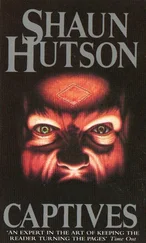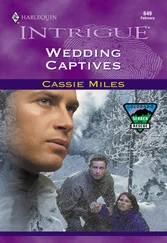Norman Manea - Captives
Здесь есть возможность читать онлайн «Norman Manea - Captives» весь текст электронной книги совершенно бесплатно (целиком полную версию без сокращений). В некоторых случаях можно слушать аудио, скачать через торрент в формате fb2 и присутствует краткое содержание. Год выпуска: 2014, Издательство: New Directions, Жанр: Современная проза, на английском языке. Описание произведения, (предисловие) а так же отзывы посетителей доступны на портале библиотеки ЛибКат.
- Название:Captives
- Автор:
- Издательство:New Directions
- Жанр:
- Год:2014
- ISBN:нет данных
- Рейтинг книги:3 / 5. Голосов: 1
-
Избранное:Добавить в избранное
- Отзывы:
-
Ваша оценка:
- 60
- 1
- 2
- 3
- 4
- 5
Captives: краткое содержание, описание и аннотация
Предлагаем к чтению аннотацию, описание, краткое содержание или предисловие (зависит от того, что написал сам автор книги «Captives»). Если вы не нашли необходимую информацию о книге — напишите в комментариях, мы постараемся отыскать её.
Captives
This is a moving account of a country shaken by communism and anti-Semitism and haunted by recent atrocities, from "a distinguished writer whose vision of totalitarianism is close to Kafka's cloudy menace, universal yet internalized" (Richard Eder,
).
Captives — читать онлайн бесплатно полную книгу (весь текст) целиком
Ниже представлен текст книги, разбитый по страницам. Система сохранения места последней прочитанной страницы, позволяет с удобством читать онлайн бесплатно книгу «Captives», без необходимости каждый раз заново искать на чём Вы остановились. Поставьте закладку, и сможете в любой момент перейти на страницу, на которой закончили чтение.
Интервал:
Закладка:
I’d probably behaved strangely because she remembered me. After that, she made a habit of coming out of the kitchen. She’d come into the dining hall and observe for a while, and if she caught sight of me, she’d give me a smile. She had white teeth, very white. Sometimes, if there weren’t many people, that is, if I were late, she’d come to my table. Huge as she was, in her spectacular, thin, soothing voice she’d ask if I wouldn’t like to eat something special: she’d fix it for me. She would bring it to the table, and I would keep watching those fat little hands with short fingers like sausages and long, twisted, black nails. I missed lunch several times for this reason. It was unpleasant for me. The others had noticed too: it nauseated me. Once I stood up and left while she was talking to me. She realized I was annoyed and backed off, but she still follows me with her eyes. She follows me secretly, from the kitchen door, without coming closer anymore — except rarely. Sometimes she still asks me how I’m doing, smiles with her little white teeth, and heads away.
We finish work late. The afternoons are short, particularly toward the end of autumn or in winter. In winter the working conditions are more difficult. We are very careful with the pouring. The “catching” and hardening of the cement happens slowly. The water in the concrete dilates and disorganizes its structure. The concrete needs to be checked carefully to make sure that it’s properly prepared. I go to the workstation to check if they have reduced the ratio of water, if they have selected the aggregates, if they are heating them correctly. Sometimes they heat the concrete. The temperature has to be measured every two hours. I’ve reminded them so many times. It’s not my business, but I know they rush. They overlook important details. They’re heedless, hurried, keen on immediate results. They force me to keep an eye on them.
Even in summer. Maybe particularly in summer, when they want to pour as quickly as possible and then go into town for a few hours before nightfall. They don’t care that on dry summer days the concrete’s surface needs to be sprinkled with water after it has been covered with matting or a layer of sand or sawdust. It isn’t a huge deal, but it needs to be done. If they rush to arrive in town before nightfall, they do a sloppy job.
The town isn’t far away, ten, maybe fifteen kilometers. It doesn’t tempt me. Still, they took me with them one day, almost by force. It was pleasant outside. The weather was beginning to warm up. It’s a small city, and having the worksite barrack nearby has made it more lively. A few streets, a small downtown. By the time we arrived, it had cooled off again. The wind blew. We walked in front of the stores, the movie theater. We were an odd group, the way we walked in worn-out, grayish uniforms — like dusty, tired prisoners — but the locals had gotten used to us.
I don’t know how, but I got separated from the others. I had remained behind. Maybe I had been distracted, looking at the houses and shop windows. They’d probably gone in somewhere to eat, to party. I headed up a street that seemed busy and headed toward the center.
The houses were solid. The people were returning from shopping with bags of bread and beer. I stopped on a street corner and leaned against the wall of a small building, a dairy store. I watched the passersby with their curiosity; perhaps they were asking themselves who I was and why they didn’t know me. What was I doing in their city, on their street, leaning against the door of that particular building?
I headed up a narrow, perpendicular street. The sun touched me suddenly, the sun was touching the houses, too. It was a faintly glowing street, under the arms of tall trees waving large, cool leaves. . short houses, each hidden under a red, orange, or green roof — severe, calm houses under a peaceful and unwavering sky.
The small street descended toward a park. There were several empty benches. I sat down. I stayed on the bench and looked at the children who were shoving each other. They were skipping rope, falling, tripping each other. The mothers were running around making peace. I went out of the park and took several steps, just a few. Near the park was a tall, massive building, a school. Probably the city’s high school. Just a few steps. . I hugged the concrete wall. A car sped past me, a car ready to run me down. It braked in front of the school. Another green car shot past. Two well-dressed young men got out — black suits, white shirts, neckties. They were laughing. Bouncing, they set off toward the school. The car sprang forward. Another stopped. Tall, supple girls — wearing either long heavy dresses or very short dresses — got out, too. You could see their young white knees, and their authentically curly, golden, or chestnut hair fluttered. I withdrew. It was a graduation celebration, I imagined. Kept moving, and went into a courtyard. The metallic gate slammed behind me.
I climbed a step. I had walked into a building with an upper floor. I started climbing up the steps. I stopped on the staircase. It was dark. I stayed like that. I didn’t know which way to go. My hand clutched the cold bannister. I heard voices. Someone would come downstairs. A door slammed somewhere above. A step could be heard descending. One step, yet another. I was waiting for a light to be switched on. Someone panted. The person was coming down with difficulty. It must have been someone sick, asthmatic, some unbearable. . some unacceptable wretch, some ugly, gaunt, and sweating swine who was moving step by step, waiting. Maybe that person felt my presence. Now that person was bleating, breathing disgustingly, some bad stench. I jumped aside, down two steps. I was in the courtyard, in the street. The gate’s iron latch closed behind me.
The street was clear, quiet. The weather had grown cooler: it was cold. In front of the school there wasn’t a. . there was no one. I wiped my brow with my hand. I walked up the street again. It was drizzling now. The raindrops fell along my footpath and enveloped my sleeves and shoulders. I arrived at the intersection, at the corner where the dairy stood. I stayed there. The rain had energized me. Couples walked past arm-in-arm. They had a festive air: the women had ridiculous hairdos, and the men strutted stiffly. They looked at me reproachfully. My outfit wasn’t exactly suitable. . not quite correct. The raindrops slid down my cheeks and my hands. Who knows? We must be prepared. When it rains the pouring of concrete becomes more difficult. The material has to be protected, covered. The rain shouldn’t liquefy the cement. Autumn and winter are coming quickly. We don’t have enough time. We’ll cover the concrete with mats, with sheets of tarp, as is proper. We must work in any weather. No one has any reason to shriek. . no, to shirk, to get shook up.
Hugged against the corner of the dairy, I watched the couples moving along the street, which headed down toward the park, toward the school, yes, toward the school. They were going, perhaps, to some celebration, yes, they were going to a banquet, to the graduation banquet. That must have been why all the taxis were rushing: the young graduates were celebrating their separation from the rigors of school. That’s how they do it nowadays: each one comes in a taxi. Motionless under the rain, in their way: they would have thought I was a lost tramp or something like that, with a dusty beard, disheveled hair, and a filthy uniform dabbed with cement. The couples kept passing, less frequently now, walking at the same brisk, uniform pace. They were late. They were in a hurry. I should have had armfuls of flowers to offer them, large bouquets of blue flowers to give to the girls and boys. They should’ve understood that my bizarre appearance had nothing defiant about it. I’m a person from here, from close by, one of them. My lazy gestures lacked any violence. Only the uniform had drawn in too much water, like a sponge, a cold bandage.
Читать дальшеИнтервал:
Закладка:
Похожие книги на «Captives»
Представляем Вашему вниманию похожие книги на «Captives» списком для выбора. Мы отобрали схожую по названию и смыслу литературу в надежде предоставить читателям больше вариантов отыскать новые, интересные, ещё непрочитанные произведения.
Обсуждение, отзывы о книге «Captives» и просто собственные мнения читателей. Оставьте ваши комментарии, напишите, что Вы думаете о произведении, его смысле или главных героях. Укажите что конкретно понравилось, а что нет, и почему Вы так считаете.












